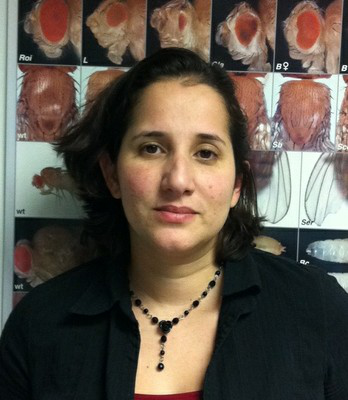应gg999策略手机白菜邀请,巴西University of São Paulo 遗传与演化生物学系副教授Maria D. Vibranovski于4月26日-28日来我校进行学术交流并做学术报告。
题 目:The Use of Genomic and Gene Expression Large-Scale Data for the Analyses of Sexual Evolution
时 间:2018年4月27日(周五),上午10:10~11:10
地 点:gg999策略手机白菜北五楼427
摘 要:Although more than a decade has passed since the first eukaryotic genome was sequenced, the molecular basis of genome organization and complexity remains a largely unresolved problem. The relationship of genotype to phenotype has proven particularly challenging. I use gametogenesis in Drosophila as a model system to study the evolution and phenotypic expression of genomic features. Gametogenesis is a fascinating biological process; it varies temporally throughout development, and has profound evolutionary impact in that it provides the raw material for the next generation - the gamete. To date, gametogenesis research has primarily focused on single gene studies of fertility. In contrast, I apply a genomic perspective to the overall process of gametogenesis to understand the role sexual selection plays in genome evolution. In my research on genome evolution in Drosophila melanogaster, I have combined bioinformatics and statistics with experimental genomic and molecular genetic methods to obtain large-scale gene expression data on gametogenesis, or spermatogenic-stage-specific transcriptome (SpermPress). The results help to solve two classical problems that have puzzled biologists for decades: evidence for Meiotic Sex Chromosome inactivation and for Post-meiotic transcription. In this talk, I present the results obtained through the application of advanced Bayesian statistics to Gene Chip microarray data. I also introduce another puzzle yet to be solved in the evolutionary biology field related to the role of sperm haploid selection in the evolution of new genes. The discussion of alternative analyses and models on spermatogenic transcriptome and gene age is pressing and represents part of my current research agenda.

报告人简介:
Dr. Vibranovski received her Ph.D. from the University of São Paulo in 2005 in Brazil. She won the prestigious award of Pew Latin American Fellows to pursue her scientific training in a postdoctoral research with Dr. Manyuan Long in the Department of Ecology and Evolution at The University of Chicago. She developed the first techniques for male germline cell dissection and generated the first large-scale gene expression database for the different phases of Drosophila melanogaster spermatogenesis. She and collaborators showed that Meiotic Sex Chromosome Inactivation drives the chromosomal evolution and distribution of male-biased expressed genes in Drosophila as well as that there is de novo RNA synthesis in male Drosophila post-meiosis, which was once thought to be transcriptionally inactive. Since 2012, Dr. Vibranovski is an Associate Professor at the University of São Paulo investigating the impact of gametogenesis on the evolution of new genes.
欢迎感兴趣的师生参加!